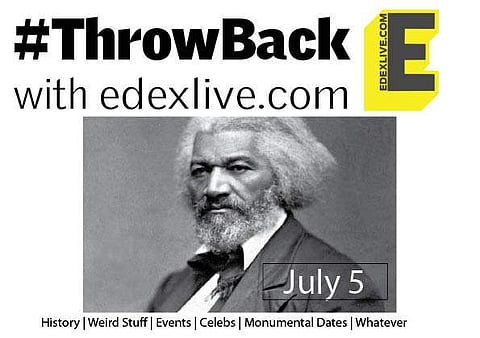

"This Fourth of July is yours, not mine, You may rejoice, I must mourn"
These thunderous words are some of the most memorable ones from the speech that has already gone down in history. Titled What to the Slave Is the Fourth of July? The era was such that though Independence Day was being celebrated with fervour, the practice of slavery was still in vogue. And who else but Frederick Douglass to call out this hypocrisy.
Frederick Douglass was once a slave himself, but had successfully escaped slavery's clutches to become an activist. Slowly, he became the national leader of the abolitionist movement (those who looked to put an end to slavery in the US) and was most noted for his oratory skills.
On the next day of USA's Independence Day, July 5, 1852, this Maryland-born statesman gave the speech What to the Slave Is the Fourth of July? which is among his best-known ones. It was addressed to the Rochester Ladies' Anti-Slavery Society in New York. Douglass, who passed away when he was 78, also went on to highlight how slaves are exploited time and time again. Parts from the speech that reverberate the strongest:
"I say it with a sad sense of the disparity between us. I am not included within the pale of glorious anniversary! Your high independence only reveals the immeasurable distance between us. The blessings in which you, this day, rejoice, are not enjoyed in common. The rich inheritance of justice, liberty, prosperity and independence, bequeathed by your fathers, is shared by you, not by me. The sunlight that brought light and healing to you, has brought stripes and death to me. This Fourth July is yours, not mine. You may rejoice, I must mourn..."
"…Fellow-citizens, pardon me, allow me to ask, why am I called upon to speak here to-day? What have I, or those I represent, to do with your national independence? Are the great principles of political freedom and of natural justice, embodied in that Declaration of Independence, extended to us? and am I, therefore, called upon to bring our humble offering to the national altar, and to confess the benefits and express devout gratitude for the blessings resulting from your independence to us?"
